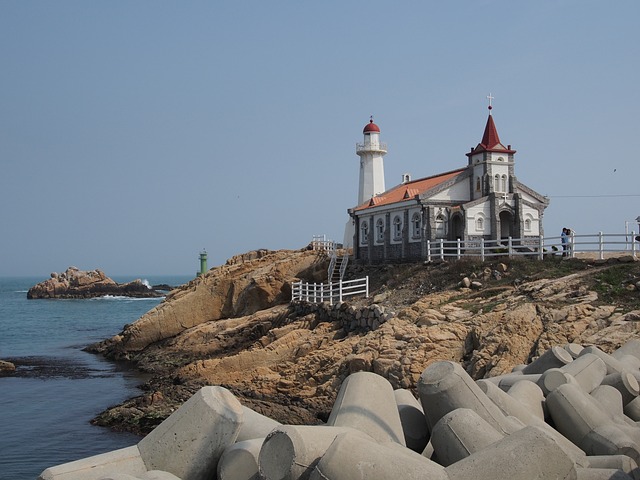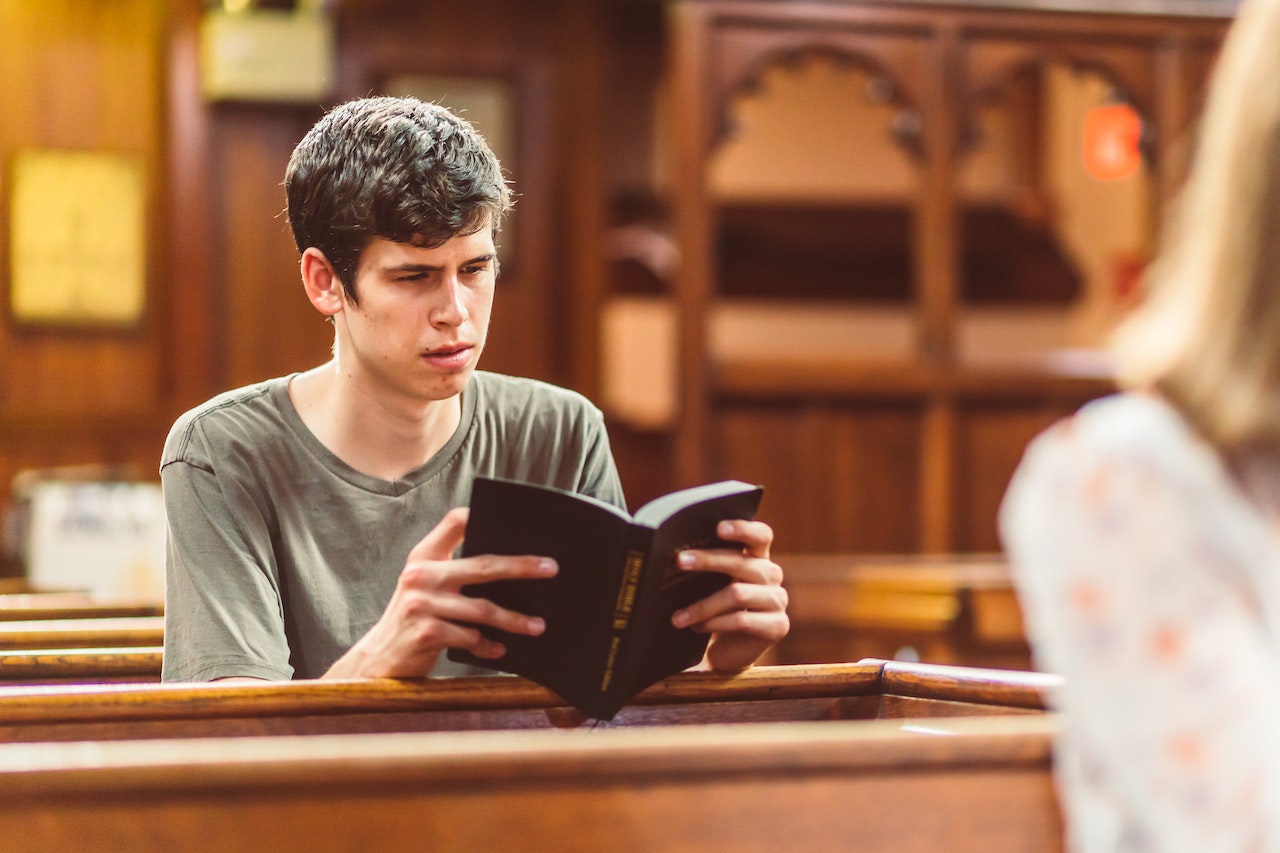Orthodox Christianity is a branch of Christianity that traces its origins back to the early Church established by Jesus Christ and his apostles. It is one of the oldest Christian traditions, with a rich history and distinctive beliefs and practices. Orthodox Christians believe in the Holy Trinity, the divinity of Jesus Christ, the importance of tradition and sacraments, and the authority of the Bible and church teachings. The Orthodox Church is made up of several autocephalous (self-governing) churches, each with its own hierarchy and liturgical traditions.
Table of Contents
History of Orthodox Christianity
Orthodox Christianity is one of the oldest and most traditional branches of Christianity, with a rich history that dates back to the early days of the faith. The term “Orthodox” comes from the Greek word “orthodoxia,” which means “right belief” or “correct worship.” This emphasis on correct belief and worship has been a defining feature of Orthodox Christianity throughout its history.
The roots of Orthodox Christianity can be traced back to the early Christian communities in the Eastern Mediterranean, particularly in places like Antioch, Alexandria, and Constantinople. These communities developed their own distinct theological and liturgical traditions, which eventually coalesced into what we now know as Orthodox Christianity.
One of the key events in the history of Orthodox Christianity was the Great Schism of 1054, which divided the Christian world into the Eastern Orthodox Church and the Roman Catholic Church. The primary point of contention was the role of the Pope in the Church, with the Eastern Orthodox Church rejecting the Pope’s claim to universal authority over all Christians. This schism marked the beginning of the separate development of the Eastern and Western branches of Christianity.
Despite this division, Orthodox Christianity continued to thrive in the Eastern Mediterranean and beyond. The Byzantine Empire, with its capital in Constantinople, played a crucial role in the spread of Orthodox Christianity throughout the region. The Byzantine Emperor was seen as the protector of the Orthodox faith, and the Church played a central role in the life of the empire.
Over the centuries, Orthodox Christianity continued to spread to new regions, including Russia, the Balkans, and the Middle East. Each of these regions developed its own unique traditions and practices, while remaining united in their adherence to the core beliefs of Orthodox Christianity.
One of the defining features of Orthodox Christianity is its emphasis on tradition and continuity. Orthodox Christians believe that their faith has been passed down unchanged from the apostles themselves, and they place a high value on preserving the teachings and practices of the early Church. This commitment to tradition can be seen in the liturgical practices of the Orthodox Church, which have remained largely unchanged for centuries.
Another key aspect of Orthodox Christianity is its emphasis on the mystical and sacramental nature of the faith. Orthodox Christians believe that the sacraments, such as baptism and the Eucharist, are channels of God’s grace and are essential for salvation. The Orthodox Church also places a strong emphasis on prayer and fasting as a means of drawing closer to God.
Today, Orthodox Christianity is practiced by millions of people around the world, with large communities in countries like Russia, Greece, Romania, and Serbia. Orthodox Christians continue to uphold the traditions and teachings of their faith, while also engaging with the modern world and addressing contemporary issues.
In conclusion, the history of Orthodox Christianity is a rich and complex tapestry that spans centuries and continents. From its origins in the early Christian communities of the Eastern Mediterranean to its spread to new regions and its continued relevance in the modern world, Orthodox Christianity has remained a vibrant and dynamic expression of the Christian faith. Its emphasis on tradition, sacrament, and prayer continues to inspire and guide believers today.
Orthodox Christian Beliefs and Practices
Orthodox Christianity is a branch of Christianity that has a rich history and a set of beliefs and practices that have been passed down through generations. For those who are unfamiliar with Orthodox Christianity, it can seem mysterious and unfamiliar. However, at its core, Orthodox Christianity is a faith that is centered on the teachings of Jesus Christ and the traditions of the early Christian church.
One of the key beliefs of Orthodox Christianity is the belief in the Holy Trinity. This doctrine teaches that there is one God who exists in three persons: the Father, the Son (Jesus Christ), and the Holy Spirit. This belief is central to Orthodox Christian theology and is reflected in the prayers and liturgies of the church.
Another important aspect of Orthodox Christian belief is the veneration of icons. Icons are religious images that are used in worship and prayer. They are considered to be windows into the divine and are used as aids to meditation and contemplation. Icons are not worshipped in Orthodox Christianity, but they are venerated as a way to connect with the divine.
Orthodox Christians also place a strong emphasis on the sacraments, which are sacred rituals that are believed to convey God’s grace to the believer. The sacraments include baptism, chrismation (confirmation), the Eucharist (communion), confession, marriage, holy orders, and anointing of the sick. These sacraments are seen as essential to the spiritual life of the believer and are celebrated with great reverence and solemnity.
In addition to their beliefs, Orthodox Christians also have a rich tradition of liturgical worship. The Orthodox liturgy is a beautiful and ancient form of worship that is filled with symbolism and meaning. The liturgy includes prayers, hymns, scripture readings, and rituals that are designed to help the believer connect with God and experience his presence.
Orthodox Christians also have a strong tradition of fasting and prayer. Fasting is seen as a way to discipline the body and focus the mind on spiritual matters. Orthodox Christians fast on certain days and during certain seasons of the church year, such as Lent and Advent. Prayer is also an important part of Orthodox Christian life, with believers encouraged to pray regularly and to participate in the daily prayers of the church.
Overall, Orthodox Christianity is a faith that is rooted in tradition and steeped in history. It is a faith that values the teachings of the early church fathers and seeks to preserve the ancient practices of the Christian faith. For those who are drawn to the beauty and mystery of Orthodox Christianity, it offers a rich and fulfilling spiritual path that can deepen their relationship with God and with their fellow believers.
Differences Between Orthodox Christianity and Other Christian Denominations

Orthodox Christianity is one of the oldest branches of Christianity, tracing its roots back to the early days of the church. While it shares many beliefs and practices with other Christian denominations, there are some key differences that set it apart.
One of the main differences between Orthodox Christianity and other Christian denominations is its emphasis on tradition and the importance of the early church fathers. Orthodox Christians believe that the teachings and practices of the early church are essential for understanding the faith and living a truly Christian life. This emphasis on tradition can be seen in the liturgy, which is often conducted in a way that has remained largely unchanged for centuries.
Another key difference is the role of the church in the life of the believer. In Orthodox Christianity, the church is seen as the body of Christ, and its teachings and sacraments are essential for salvation. This is in contrast to some other Christian denominations, which may place more emphasis on individual faith and personal relationship with God.
Orthodox Christianity also has a different understanding of the nature of salvation. While all Christians believe in the importance of Jesus’ death and resurrection for salvation, Orthodox Christians emphasize the idea of theosis, or becoming like God. This process of spiritual growth and transformation is seen as essential for salvation and is achieved through participation in the sacraments and a life of prayer and asceticism.
Another key difference between Orthodox Christianity and other Christian denominations is the role of the Virgin Mary and the saints. Orthodox Christians believe that Mary and the saints play a crucial role in the life of the church and can intercede on behalf of believers. This belief is reflected in the practice of asking for the prayers of the saints and venerating icons of Mary and the saints.
Orthodox Christianity also has a different understanding of the Trinity. While all Christians believe in the Trinity – the Father, Son, and Holy Spirit – Orthodox Christians emphasize the idea of the Trinity as a community of persons in loving relationship. This understanding of the Trinity shapes Orthodox theology and spirituality, emphasizing the importance of community and relationships in the Christian life.
Despite these differences, Orthodox Christianity shares many beliefs and practices with other Christian denominations. All Christians believe in the importance of Jesus’ death and resurrection for salvation, the authority of the Bible, and the need for prayer and worship. Orthodox Christians also share many of the same moral teachings as other Christians, such as the importance of love, forgiveness, and compassion.
In conclusion, Orthodox Christianity is a rich and ancient tradition that has much to offer to the wider Christian community. While there are some key differences between Orthodox Christianity and other Christian denominations, there are also many shared beliefs and practices that unite all Christians. By learning more about Orthodox Christianity and engaging in dialogue with Orthodox Christians, we can deepen our understanding of the Christian faith and grow in our relationship with God.
Orthodox Christian Holidays and Traditions
Orthodox Christianity is a branch of Christianity that has a rich history and a unique set of holidays and traditions. For those who are unfamiliar with Orthodox Christianity, it can be a fascinating world to explore.
One of the most important aspects of Orthodox Christian holidays and traditions is the liturgical calendar. This calendar is based on the Julian calendar, which is slightly different from the Gregorian calendar used by most of the Western world. As a result, Orthodox Christian holidays often fall on different dates than their Western counterparts.
One of the most important holidays in the Orthodox Christian calendar is Easter, also known as Pascha. This holiday is celebrated with great joy and reverence, as it commemorates the resurrection of Jesus Christ. Orthodox Christians fast for 40 days leading up to Easter, a period known as Great Lent, in preparation for the celebration. On Easter Sunday, Orthodox Christians attend church services and participate in a midnight liturgy to celebrate the resurrection.
Another important holiday in the Orthodox Christian calendar is Christmas, which is celebrated on January 7th. This date corresponds to December 25th on the Julian calendar. Like Easter, Christmas is a time of great joy and celebration for Orthodox Christians. Many Orthodox Christians fast for 40 days leading up to Christmas, a period known as Nativity Fast, in preparation for the celebration. On Christmas Day, Orthodox Christians attend church services and participate in special liturgies to celebrate the birth of Jesus Christ.
In addition to these major holidays, Orthodox Christians also celebrate a number of feast days throughout the year. These feast days commemorate important events in the lives of Jesus Christ, the Virgin Mary, and the saints. Orthodox Christians attend church services on these feast days and participate in special liturgies to honor and remember these important figures in their faith.
Orthodox Christian traditions are deeply rooted in the history and teachings of the early Christian church. Many Orthodox Christians follow traditional practices such as fasting, prayer, and almsgiving as a way to deepen their faith and grow closer to God. Orthodox Christians also place a strong emphasis on the sacraments, particularly the Eucharist, which is central to their worship and spiritual life.
Overall, Orthodox Christian holidays and traditions are a vibrant and integral part of the faith of millions of believers around the world. Whether you are a lifelong Orthodox Christian or someone who is simply curious about this ancient branch of Christianity, exploring Orthodox Christian holidays and traditions can be a rewarding and enlightening experience.
Famous Orthodox Christian Saints and Icons
Orthodox Christianity is a branch of Christianity that has a rich history and tradition dating back to the early days of the church. One of the most fascinating aspects of Orthodox Christianity is the veneration of saints and icons. Saints are individuals who have lived holy lives and are believed to be in heaven, interceding on behalf of those who pray to them. Icons are religious images that are used as aids to prayer and meditation.
One of the most famous Orthodox Christian saints is St. Nicholas. St. Nicholas was a bishop in the 4th century in what is now modern-day Turkey. He was known for his generosity and kindness, especially towards children. St. Nicholas is the inspiration for the modern-day figure of Santa Claus, who is known for bringing gifts to children on Christmas Eve. St. Nicholas is venerated by Orthodox Christians around the world, and his feast day is celebrated on December 6th.
Another famous Orthodox Christian saint is St. John the Baptist. St. John the Baptist was a cousin of Jesus and is known for his role as the forerunner of Christ. He preached a message of repentance and baptized Jesus in the Jordan River. St. John the Baptist is venerated by Orthodox Christians as a great prophet and martyr, and his feast day is celebrated on January 7th.
Icons play a significant role in Orthodox Christian worship. Icons are considered to be windows into heaven, through which believers can connect with the divine. Icons are used in prayer and meditation, and are often kissed or venerated as a sign of respect. One of the most famous icons in Orthodox Christianity is the icon of the Theotokos, or Mother of God. The Theotokos is depicted holding the infant Jesus and is venerated as the protector and intercessor of all believers.
Another famous icon in Orthodox Christianity is the icon of Christ Pantocrator. Christ Pantocrator is a depiction of Jesus as the ruler of the universe, with one hand raised in blessing and the other holding a book of the Gospels. This icon is often found in the dome of Orthodox churches, symbolizing Christ’s presence and authority over all creation.
The veneration of saints and icons is a central aspect of Orthodox Christian spirituality. Saints and icons serve as reminders of the presence of God in the world and as intercessors for believers in their prayers. The veneration of saints and icons is not worship, but rather a way of honoring and connecting with the divine through the lives and images of holy men and women.
In conclusion, Orthodox Christianity has a rich tradition of veneration of saints and icons. Saints like St. Nicholas and St. John the Baptist are revered for their holiness and their intercession on behalf of believers. Icons like the Theotokos and Christ Pantocrator serve as aids to prayer and meditation, helping believers to connect with the divine. The veneration of saints and icons is a beautiful and meaningful aspect of Orthodox Christian spirituality, reminding believers of the presence of God in their lives.
Conclusion
Orthodox Christianity is a branch of Christianity that traces its origins back to the early church established by Jesus Christ and his apostles. It is characterized by its adherence to traditional beliefs and practices, including the use of icons in worship and the importance of the sacraments. Orthodox Christians believe in the Holy Trinity, the divinity of Jesus Christ, and the authority of the Bible. Overall, Orthodox Christianity is a rich and ancient tradition that continues to be practiced by millions of believers around the world.
For licensing reasons, we must provide the following notice: This content was created in part with the help of an AI.


